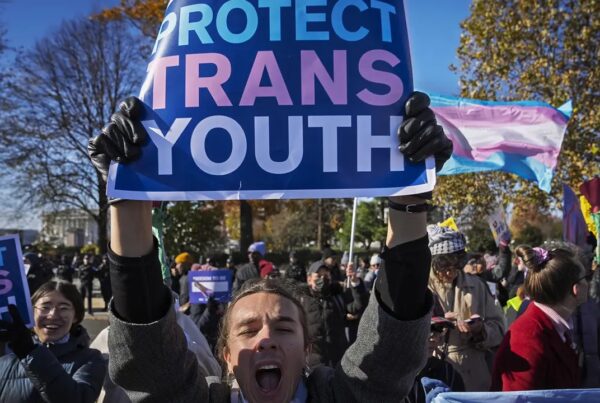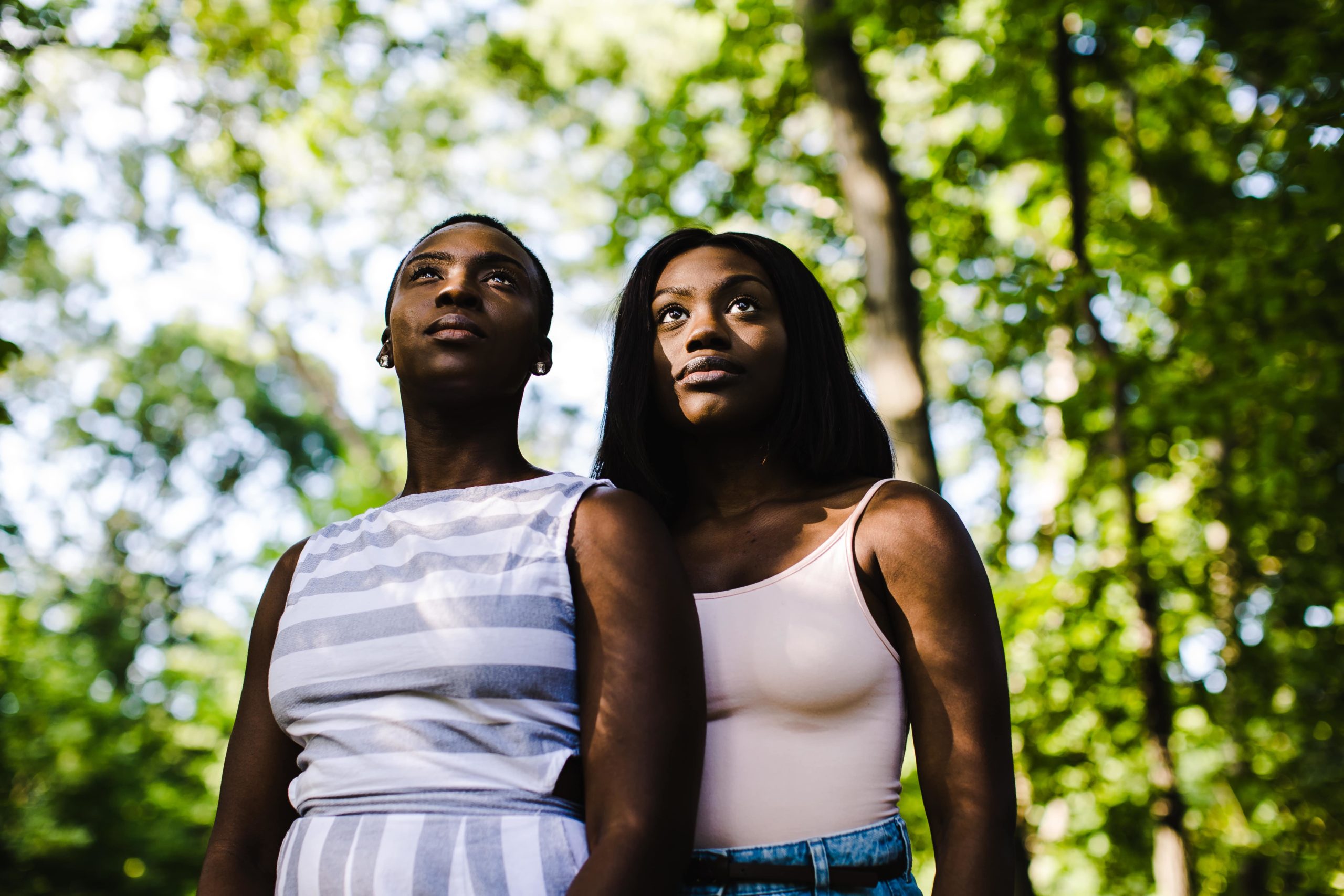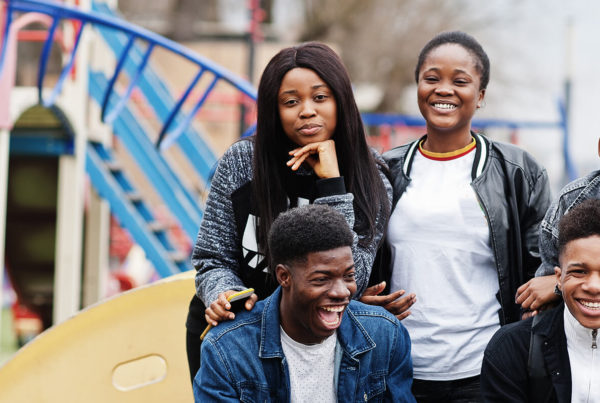By Jenn M Jackson
March 10, 2021
March is Women’s History Month. It’s the month when we celebrate major political milestones like the election and inauguration of the first Black and Indian American woman, Kamala Harris, to the position of Vice President of the United States. In months like these, we often spend time recognizing the pioneering Black women in Congress like Reps. Lucy McBath (GA), Cori Bush (MN), Ayanna Pressley (MA), and Jahana Hayes (CT). While these wins and path-breaking successes for Black women have changed the political terrain of the United States, they have also highlighted the grave underrepresentation of Black women in political leadership. This underrepresentation of Black women in Congress has its symbolic effects, but, more importantly, it means there are fewer representatives whose political identities and goals align with the political lives and concerns of many Black women. And, in many ways, these political successes are often used to obfuscate the conditions average Black women are facing across the country today.
Even while Black women have remained underrepresented in politics, they remain one of the most active voting blocs in the country, continuing to support Democrat candidates across the country. In 2020, Black women voters were critical to electing Joe Biden as the 46th President of the United States. Back in 2008, for the first time ever, Black women had the highest turnout rate among all racial, gender, and ethnic groups. This should come as no surprise since this was the first time Black women could cast their vote for a Black Democrat named Barack Obama. As Leah Wright Rigueur writes in The Atlantic, “For Black women, voting is an act of collectivism: They vote as an impenetrable bloc, with slight variations due to class, socioeconomic background, and geographic region.” As such, Black women are a reliable voting bloc that has consistently shown up for Democratic candidates.
But, what has this loyalty to Democrats and the political system, as a whole, evinced for Black women? It’s not clear. What has become crystal clear since the first wave of the COVID-19 crisis resulted in mass school and work closures around the country in March 2020 is that Black women have experienced the global crisis differently from other groups.
As Black women navigate the precariousness of this global pandemic and massively critical political moment, we do so amidst a complicated social world that is based in a refusal to fully acknowledge the ways that Black women struggle and survive despite these conditions. In our April 2020 GenForward Survey, we found that over one quarter (26%) of young Black women said that they knew someone who had tested positive for the coronavirus, and 17% said they knew someone who had been hospitalized for it. A majority of young adult Black women (51%) believe that the coronavirus is a major threat to their personal health. Black women’s concerns about COVID-19 are only further exacerbated when they are pregnant and frequently confronting the racism of western medicine. This isn’t surprising given Black women’s ongoing experiences with discrimination in medicine and a failure of healthcare systems in the United States.
During the COVID-19 crisis, the existing disparities in maternal health have only worsened. In the United States, Black women are three to four times more likely to die from childbirth-related causes when compared to white women. In New York City, in particular, the New York Times notes that “Black women are eight to 12 times more likely to die. Black infants in the city are also three times more likely to die than white newborns — a gap that is nearly 50 percent greater than the national average.” They continue, “Researchers say most of these deaths are preventable.” With the strains on hospitals, reduced resources across communities, and shifts to telemedicine during the pandemic, vulnerable Black women with underlying conditions have struggled to get in-person visits at hospitals and have been relegated to emergency room care and last minute procedures that put their lives at-risk.
This Women’s History Month, as we celebrate our wins it’s critical that we acknowledge how Black women continue to struggle against the disproportionate impacts of health precarity and how that struggle has only been compounded during the pandemic. For many of these women, it isn’t just the health institutions and systemic racism that shape their experiences during the pandemic. It has also been the proliferation of unreliable information sources since the start of the global health crisis.
Specifically, this moment of political disinformation and “fake news” has shaken Black women’s confidence in the voracity of the news and media surrounding COVID-19. According to our survey, Black women are least likely to trust information about the coronavirus from the federal government. Only 34% of Black women indicate that they trust information a great deal or a good amount. This is compared to 42% of African American men and 50% of white women.
Many Black women are moving through this social and political moment cautiously, concerned about the unpredictability of our relationship to the State. For many of us, we understand what Audre Lorde meant when she wrote about her concerns of being “crunched into other people’s fantasies” and “eaten alive.” We fundamentally understand what it means to be the social safety net for others when we have little to no social safety nets of our own.
Yes, this month is about celebration. It is about the stories we will tell our children and what we will write in the history books to pass on to posterity. And, it must also be about truth-telling about and reckoning with the ways that Black women remain uncomfortably tethered to the State. This is a nonreciprocal relationship wherein we are always expected to save the State from itself yet there is never anyone there to save us.
So what do we do? We save ourselves.
The GenForward Survey is associated with the University of Chicago. April 2020 responses were collected April 3rd, 2020 through April 16th, 2020, among a nationally-representative sample of 3,217 young adults between the ages of 18 and 36. The overall margin of sampling error is +/- 2.39%.
Jenn M. Jackson (they/them) is a queer androgynous Black woman, an abolitionist, a lover of all Black people, and an Assistant Professor at Syracuse University in the Department of Political Science. Jackson’s research is in Black Politics with a focus on group threat, gender and sexuality, political behavior, and social movements. Jackson is a columnist at Teen Vogue, the author of peer-reviewed articles at Public Culture, Politics, Groups, and Identities, and the Journal of Women, Politics, and Policy, and the author of several forthcoming book chapters on the intersections of race, gender, class, and politics. Learn more about Jenn & the GenForward researchers here.
More Perspectives



